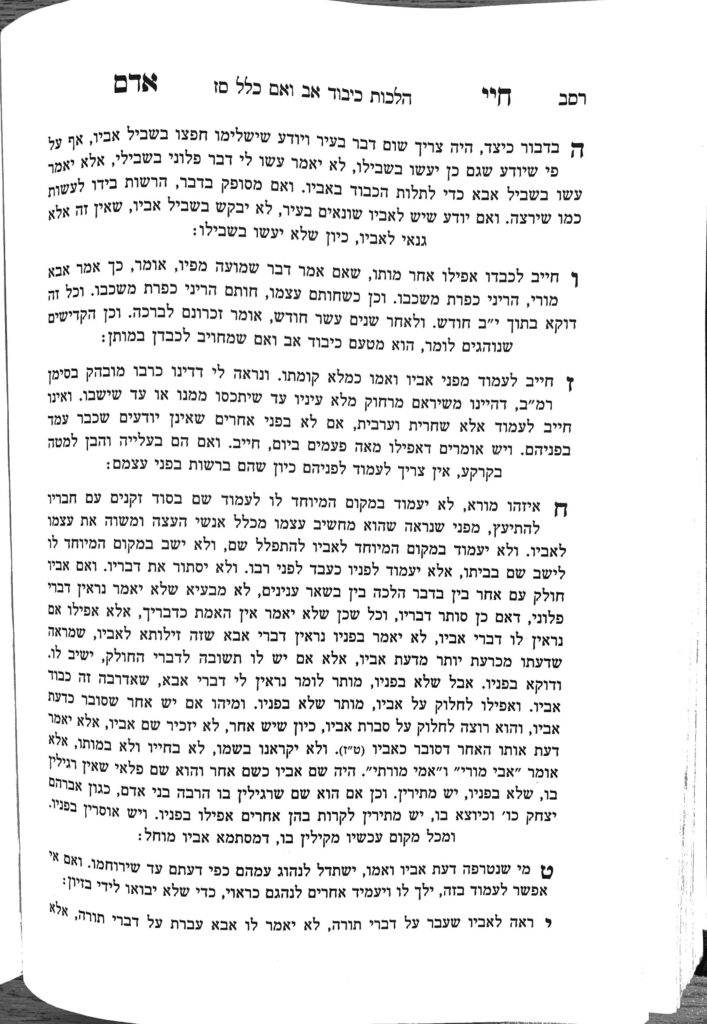We are continuing in siman 8, where the Chayei Adam discusses the parameters of morah.
The Chayei Adam writes that a child should not disagree with a parent’s opinion. For example, when a parent is in a discussion with someone else, the child should not say ‘the other person’s opinion makes more sense’, and certainly not ‘I think the other person is correct’. On the other side, if the child thinks his parent is correct, he should not say ‘I think my parent is correct’, because saying so demonstrates a lack of kavod, as it indicates that the father needs the child’s approbation to be correct. In the same way that it would be inappropriate to inject one’s opinion in a machlokes between Rav Moshe Feinstein and Rav Yaakov Kaminetsky, it is inappropriate to do so for one’s parent.
If a child has a response (what the Chayei Adam calls a teshuva) to the other person in the discussion, he may respond appropriately.
If the parent is not present, it is muttar for a child to say ‘I think my parent is correct’, because it is a kavod for the parent for the child to clarify where they stand on the question. Additionally, the Chayei Adam writes that it is muttar to argue on one’s parent’s opinion, if the child thinks it is wrong. This point is actually a machlokes in Yoreh Deah. The Taz and the Gra hold it is muttar to argue on a parent when not in their presence, but the Shach disagrees. Even according to those who are matir, one must still disagree respectfully.
Even according to those who hold it is assur to argue on a parent, all agree a child is allowed to bring proofs as questions against the opinion of their parents. Giving an opinion alone, without a proof, is what is considered a lack of kavod, but when one argues with the backup of a proof, it is muttar.
Although we learned that the Chayei Adam holds a child may disagree with their parent’s opinion when the parent is not present, if there is another person who has the same opinion as their parent, they should state that they disagree with the other person, and avoid stating directly that they argue with their parent.
Summary
- A child should not agree or disagree with their parent’s opinion in their presence. However, if they have a proof to their argument, they may present their proof.
- If the parent is not present, a child may agree or disagree with their parent’s opinion.
- However, if another person has the same opinion as their parent, they should argue on the other person and avoid stating directly that they argue with their parent.



